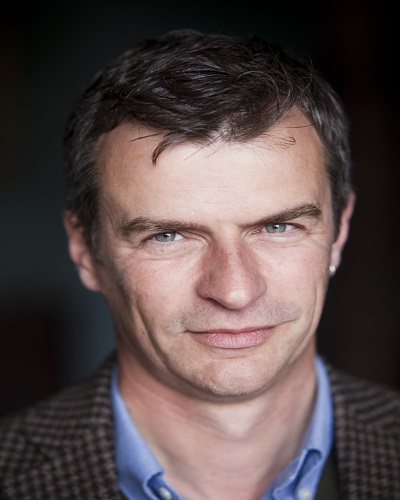
Seamus Deane, who sadly died in May 2021, was a towering figure in Irish intellectual, cultural and literary life. The breadth of his scholarship and the scale of his achievement are unmatched by any post-war literary critic in Ireland and his legacy includes a profound transformation in the conceptualisation of literary culture in Ireland. Deane’s recasting, in the Irish context, of the literary as a thing apart and in-and-of-itself, into writing as a complex feature on a historico-cultural spectrum, was the nub of the immense work of intellectual labour which his career involved.
Seamus Deane’s life, writing and thinking were very obviously shaped by the Northern Irish state in which he grew up and the secondary education he got at St Columb’s. His generation benefitted from the effects of Education Act of 1947 (the Northern Irish government’s delayed version of the Butler Education Act of 1944 in England and Wales), which opened out education in socially transformative ways. The fierce desire to learn, the seriousness with which knowledge should be treated, and the value of education, are as evident in Deane’s writing as they are in his classmate Seamus Heaney’s writing. And it was, no doubt, the background of Derry, the North, and the deep inequalities of the Northern state, along with the possibilities for liberation which were being explored across the globe in the 60s, that formed Deane’s intellect.
As Conor McCarthy has argued, the twin influences of Edmund Burke and Theodor Adorno are one way to understand the patterns of Deane’s ideas. Or, to think of it another way, the qualified failure of the potential of the French Revolution and the unfulfilled promise inherent in Marx’s critique of capitalism are the poles of thought which mark out both his early thinking and his later work. As McCarthy suggests, Deane’s book The French Enlightenment and Revolution in England, 1789-1832 (1988) though published after Celtic Revivals (1985) and A Short History of Irish Literature (1986), is foundational both because it was based on Deane’s dissertation at Cambridge and because it explores the flashpoints of what Deane called, in the ‘General Introduction’ to The Field Day Anthology of Irish Writing (and with reference to Coleridge’s post-Revolutionary consideration of a “reconciliation of opposites”) “the confrontation between the aesthetic and political realms”. In that ‘General Introduction’ Deane notes the close connection and contrast, particularly or peculiarly in Ireland, between the political and the aesthetic, the “savage disorder” tied to the dreams of order of both: “Ultimately, any key political term is exchangeable with any key literary term. It is not a new discovery, but an old truth that is, perhaps, worth restating”.
The Field Day Anthology of Irish Writing (1991), of which Deane was General Editor, stands in some ways at the pinnacle of his career, though, as many will know, it also simultaneously represents what can be seen as a low point. Field Day as an enterprise – a publishing company, a cultural phenomenon, a theatre company – was an extraordinary venture, a mustering of forces, and an attempt to forge something new; “a revision of our heritage”, to borrow a phrase Deane used about fellow Field Day-er Heaney. In his Introduction to Small World: Ireland, 1798-2018, the newly published selection of Deane’s writing, Joe Cleary describes Deane’s as “a career that has been a creatively civic and constructive enterprise”. As a presiding presence in Field Day, Deane directed it to follow exactly these principles of the civic, the creative and, within its own terms, a constructive inclusivity. The famous pamphlet series, for example, which finished by giving an Irish platform to Eagleton, Said and Jameson, began with Tom Paulin’s A New Look at the Language Question: “A language that lives lithely on the tongue ought to be capable of becoming the flexible written instrument of a complete cultural idea” wrote Paulin, considering Irish English and Ulster Scots, and thus beginning the pamphlet series with an impetus to include versions of Ulster Protestantism in its narrative. Later the series was to open its hospitality to Terence Brown and Robert McCartney in a similar vein. But it was a different kind of lack of openness which was to trip up Field Day on the publication of the Anthology.
The substantial exclusion of female voices from the three volumes is often summarised in Deane’s supposed mea culpa “I forgot”. As Catriona Crowe pointed out in her 2003 essay on volumes 4 and 5, ‘Testimony to a Flowering’, Deane never said these words and his self-criticism was much more in keeping with his cultural criticism: “‘To my astonishment and dismay, I have found that I myself have been subject to the same kind of critique to which I have subjected colonialism … I find that I exemplify some of the faults and erasures which I analyze and characterize in the earlier period.’” It’s a forensic self-analysis. As Crowe writes “it is clear that [the editors] never for a moment foresaw the terrible consequences of ignoring feminist texts and women writers to the extent that they had”. The oversight, the blindness, was real and damaging to the enterprise – Volumes 4 and 5 became another and a new achievement for a different set of editors. The outcome of the controversy was that a generation of female writers and critics moved the debate on in leaps.
For many readers in Ireland and across the world, Seamus Deane’s intellectual accomplishments, his creation of a way of reading Irish literary-cultural history which was both global and local, radical and historicised, was barely known in comparison to the impact of his one novel, Reading in the Dark (1996), which was shortlisted for the Booker Prize in 1997. A rich evocation of a Derry childhood, Reading in the Dark, with its bildungsroman structure and thick description of the city, evokes Deane’s sense of Stephen Dedalus’s post-Dean-of-Studies-discussion relationship with Dublin, as described by Deane in Strange Country: Modernity and Nationhood in Irish Writing Since 1790 (1997): “the rhetoric of familiarity: now this is replaced by the rhetoric of estrangement. Neither cancels the other. They subsist together”. And in case we think of Reading in the Dark as only readable within a narrowly Irish-writing lineage which Deane did so much to re-canonise, the novel is as Proustian as it is Joycean, just as Deane’s work was always as inflected by his reading of German Marxism and French intellectual history, as it was by the Irish Revival. Indeed, personally speaking, the last time I spoke to Seamus was following a seminar he gave at Maynooth University on post-Revolutionary France, when, me having asked him about how what he had just argued regarding the fate of French Catholicism might have had a bearing on Proust’s writing, he spoke animatedly, enthusiastically and with typically astonishing recall of detail about the World War I sections of Proust’s Time Regained, the final volume of Remembrance of Times Past. The darkened streets of Paris in that book came back to me, vividly, as he spoke. I re-read those sections of Time Regained as soon as I got home, and I guess there’s no better sign of a fine literary scholar than the ability to send you back to a text you think you know to look at it afresh.
Seamus Deane will be much missed by his family and friends, of whom he has many in the academic community and to whom I extend my ongoing sympathies for their loss. More widely in that community, Seamus Deane’s influence will be felt for decades to come. His wry voice commented knowingly on his own legacy in a note at the bottom of his death notice on rip.ie: “Seamus asked for laughing to be held to a minimum; expressions of relief discreet, perhaps even sotto voce?” The self-deprecating humour recognises a career and a life of stirring things up, changing the way the world is perceived, being an activist and a thinker, and knowing that all of that has consequences. Seamus Deane was an immense presence in Irish cultural life, an enricher of our understanding of Irish writing, and someone with a sense that the world could be, collaboratively, re-made. We are left much the poorer for his loss.


